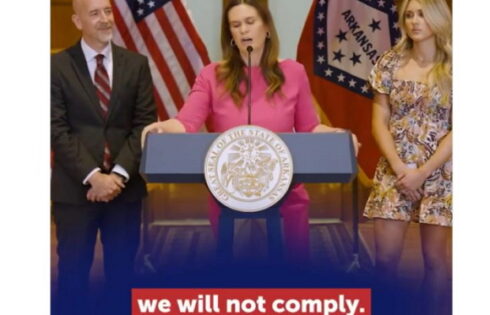 New Hampshire students of all political stripes are rejoicing at the demise of a bill that would have restricted their voting rights.
New Hampshire students of all political stripes are rejoicing at the demise of a bill that would have restricted their voting rights.
Last Wednesday, the New Hampshire House Election Law Committee voted 13 to 5 to kill House Bill 176, which would have prohibited out-of-state students from voting in local elections. The same committee unanimously rejected another bill, which would have ended same-day voter registration on Election Day.
The two bills, which were backed by Republican legislators who gained control of the state House last November, had been opposed by a united front of students across the political spectrum.
“It came down to students wanting to have a say about this attempt to change our right to vote,” said Richard Sunderland, a senior majoring in classics at Dartmouth University.
Sunderland is currently the president of the College Republicans and was actively involved in campaigning for New Hampshire Republican candidates in the midterm elections. Still, he saw the Republican-backed bill as a threat to his voting rights.
“I would say that the majority of our group votes in New Hampshire,” he said. “We were getting involved in the local campaigns. Here we have a daily, weekly involvement in politics. We don’t have many opportunities outside that.”
The Republican, Democratic, and Libertarian groups at Dartmouth banded together to protest the bills. They circulated a statewide petition and protested a hearing on Feb. 24.
“We had 800 or 900 signatures,” said Sayak “Sy” Mukherjee, a junior majoring in government and religion. Mukherje, the president of the student Democrats, was enthusiastic about joining forces with the Republicans and Libertarians.
“This was our number one issue,” he said. “You take away student-voting rights, that’s the ball game. Everything else is moot at that point.”
For Mukherjee, the issue went beyond basic politics. He was born in India, grew up in the United States, and is presently in the process of applying for citizenship.
“Passing this bill is very much against the values that I love about this place,” he said.
While the contents of the bill were controversial, comments made by House Speaker William O’Brien (R-Hillsborough) intensified student anger. At a meeting with a Tea Party group, he called students “foolish” and “inexperienced,” claiming that they “just vote their feelings.”
O’Brien did not respond to requests for comment.
Sunderland disagreed with the Speaker’s remarks, and pointed to the student movement to defeat the bill as evidence.
“If we really were foolish, if we didn’t have the experience, then I don’t think we would have stood up for our right to vote,” he said. “We did, and I think that is case in point for our right to have, not just political involvement here, but to have a voice.”
Maegan Carberry, the communications director at Rock The Vote, an organization that closely followed the New Hampshire controversy, was pleased that the committee rejected both bills.
“We’re glad that students who shared stories of how this proposed legislation would disenfranchise them were heard,” she said.
Though HB 176 was defeated, New Hampshire legislators are still considering a bill that would require photo identification when voters show up at the polls. John C. Fortier, a research fellow at the American Enterprise Institute who studies election laws and contributes to the AEI-Brookings Election Reform Project, believes that the states will continue trying to reform their voter registration requirements.
“After 2000 with the Florida voting controversy and The Help America Vote Act, there has been a trend for states to move towards more identification,” he said.
According to Fortier, since the Supreme Court upheld an Indiana voter ID law in 2008, states have been more willing to consider identification requirements.
“ I do think you’ll see more of these,” he said. “One of the things, I will say, the general public, is more or less supportive of some ID requirements.”
But the vocal student opposition that arose in New Hampshire may serve as a cautionary tale to legislators in states such as North Carolina, Wisconsin and Minnesota, where election reforms are also being considered.
Like The College Fix on Facebook / Follow us on Twitter




Please join the conversation about our stories on Facebook, Twitter, Instagram, Reddit, MeWe, Rumble, Gab, Minds and Gettr.